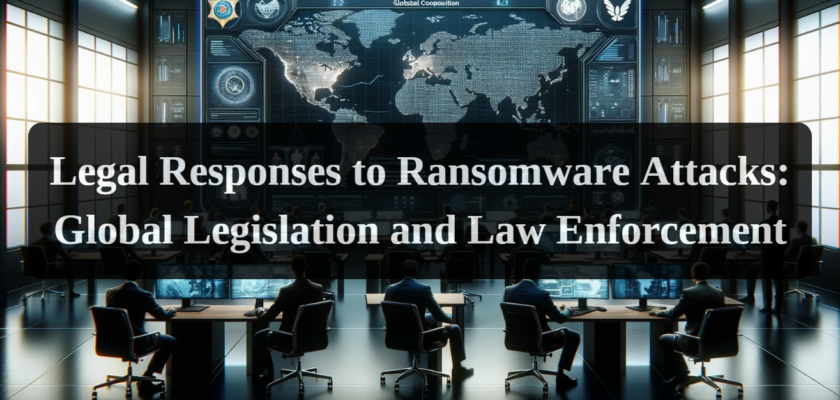The surge of ransomware attacks has become a defining cyber threat of our time, affecting individuals, businesses, and governments worldwide. These digital assaults not only encrypt data but also undermine the very fabric of our critical national infrastructure. The response has been a clarion call for a comprehensive legal strategy to mitigate and neutralize this threat. This article reviews international and national legal initiatives with a focus on the stringent measures adopted in the United States and critically assesses their effectiveness in the ongoing fight against cyber extortion.
Ransomware: A Global Threat Necessitating a Robust Legal Framework
The transition of ransomware from a peripheral nuisance to a global crisis has necessitated a shift in perspective, particularly within the United States. The Biden administration has elevated the issue to a matter of national security, signaling a departure from treating ransomware merely as a criminal activity to a strategic threat demanding a multifaceted response. This approach has been epitomized by the establishment of a dedicated task force, unifying various government agencies in a concerted effort to counteract and dismantle ransomware operations.
The Paradigm Shift in the United States
Recognizing the severity of ransomware threats, the U.S. government, under President Biden, has moved beyond traditional law enforcement methods. The administration’s strategy involves leveraging national defense mechanisms, diplomatic channels, and legal tools to counteract these threats. This pivot reflects an understanding that ransomware transcends mere criminality, touching upon issues of international relations and national defense.
The Strengthening American Cybersecurity Act
This legislative response requires operators of critical national infrastructure to promptly report cyber incidents. The Cybersecurity and Infrastructure Security Agency (CISA) serves as the central hub for this data, using it to bolster national cyber defenses and aid in the swift recovery of affected entities. The act underscores the necessity for transparency and collaboration between the public and private sectors in the face of cyber adversity.
International Efforts and Collaboration
Counter Ransomware Initiative (CRI)
The CRI, spearheaded by the UK and Singapore, has become a cornerstone of international efforts to combat ransomware. This initiative has led to a landmark international declaration that governments will not fuel the ransomware economy by paying ransoms. By uniting countries under this principle, the CRI aims to undermine the financial incentives of ransomware operations, thereby disrupting the cycle of attacks and strengthening global cyber resilience.
Evaluating the Effectiveness of Legal Measures
The Role of Sanctions
Sanctions have been implemented as a punitive and preventive measure, targeting key ransomware perpetrators. The U.S. has sanctioned individuals, like the notorious Mikhail Mahteev, hindering their ability to receive payments and participate in the global financial system. However, the effectiveness of these sanctions is debatable, as they also risk penalizing victims who, in desperation, may pay ransoms to sanctioned entities and subsequently face legal repercussions.
For an updated list of individuals targeted by these sanctions, including profiles of notorious figures like Mikhail Mahteev, you can view the FBI’s most-wanted cyber criminals.
Cybercriminals’ Response to Legal Actions
Cybercriminals have proven adept at navigating around legal barriers, often rebranding their operations to avoid detection and sanctions. Their resilience in the face of legal measures demonstrates a need for dynamic and adaptive strategies in the legal approach to cybercrime.
Financial Implications
Despite the sanctions and legal efforts, ransomware remains a lucrative enterprise for cybercriminals. The year 2023 has seen a significant profit for these groups, suggesting that while legal measures disrupt, they do not entirely deter ransomware activities.
Conclusion
The war against ransomware demands a dynamic and persistent legal approach. While current legislation and international cooperation mark significant strides, the adaptability of cyber criminals and the continued profitability of their illicit activities indicate that the legal landscape must evolve. The key lies in balancing punitive measures with incentives for compliance and reporting, enhancing international legal frameworks, and fostering collaboration across borders. As the digital realm continues to expand, so too must our collective resolve to protect it through innovative and resilient legal strategies, ensuring a robust defense against the ransomware threat that knows no borders.

